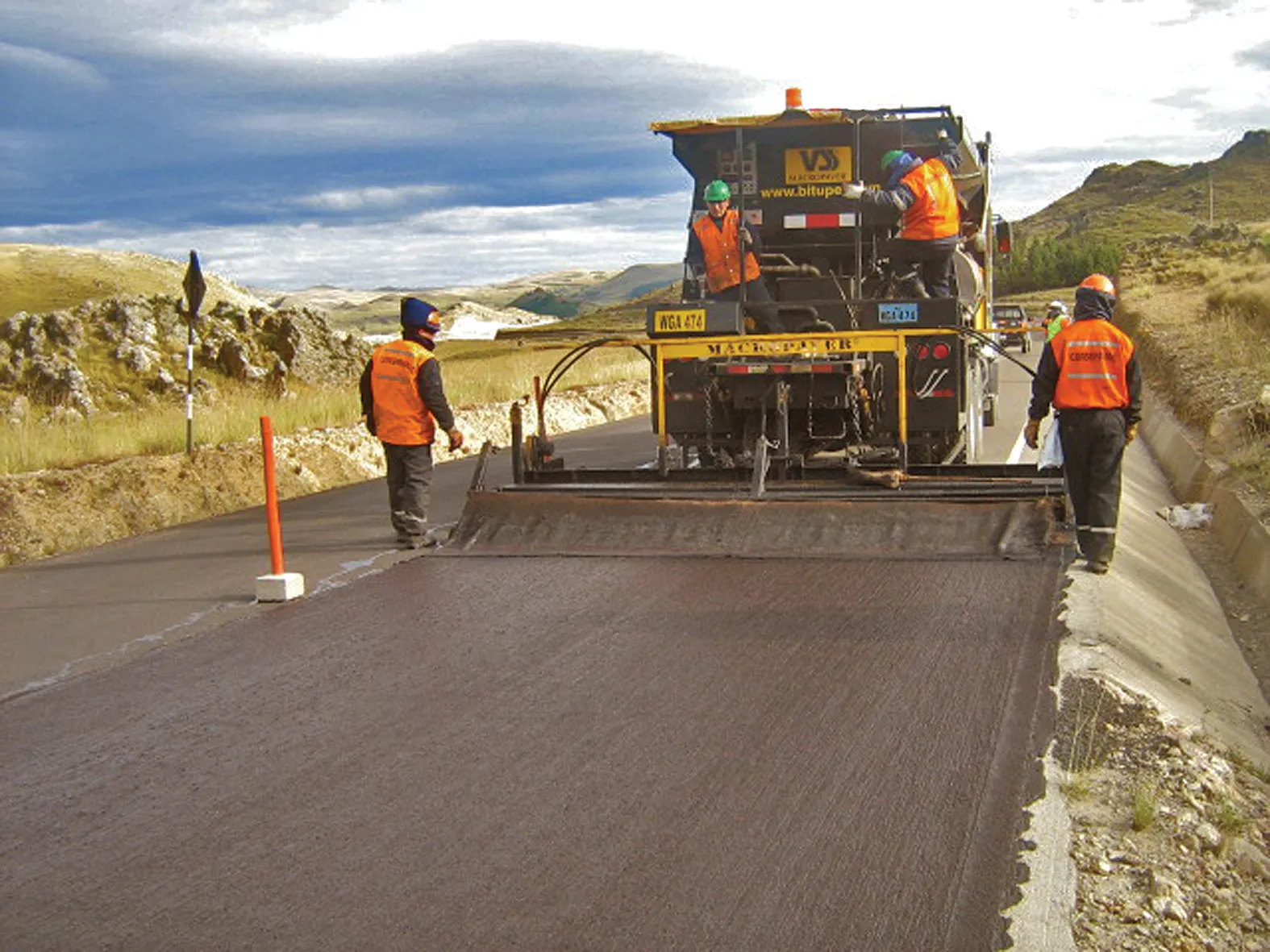Re-using crumb rubber in asphalt offers numerous benefits – Mike Woof In the US, the use of crumb rubber from old car and truck tyres in asphalt mixes has been tried over a number of years. The technology has improved considerably too, with this approach now offering much longer lasting performance.
Georgia Department of Transportation (GDOT) is one of the latest states to adopt this approach and has amended its road construction specifications to include recycled tyre rubber as an alternative to conventi
June 18, 2012
Read time: 3 mins

RSS
3328 Georgia Department of Transportation (GDOT) is one of the latest states to adopt this approach and has amended its road construction specifications to include recycled tyre rubber as an alternative to conventional oil-based polymers for road asphalt production. Recycled tyre rubber is now being used for paving in the state, which will save money by reducing dependence on oil and will help reduce waste by recycling millions of scrap tyres annually.
Tyres are manufactured in large quantities and offer high durability, so reclaiming the rubber for asphalt roads, will provide a second use for that durability and also deal with what would otherwise be problematic waste material. Sourcing tyre rubber from within the state is offering the state environmental benefits and is also providing additional jobs. While oil-based polymers are transported from other states and countries, recycled rubber can be sourced internally.
The initiative to change Georgia's road material specifications to include recycled tyre rubber came from a need to deal with the scrap tyre problem. Expertise in using this material was provided to the authorities in Georgia by Liberty Tyre Recycling, Lehigh Technologies, and Blacklidge Emulsions. Using new test data from national organisations, GDOT was then able to accelerate its approval of the process.
High-performance, rubberised asphalt allows the use of thinner layers that reduce paving costs, as well as replacing more expensive oil-based polymers. Rubberised asphalt also requires less maintenance over the life of the road and boosts safety, by allowing water to drain away from the roadway, reducing splash and spray. Another advantage is that rubberised asphalt cuts road noise.
Liberty Tire Recycling has also worked with state officials and community partners in recent years to clean up thousands of tyres spread across illegal tyre dumps throughout the state. This offers major environmental and public safety benefits as illegal tyre dumping is a major problem in Georgia. Some US$700,000 has been allocated in next year's budget just for clean-up work but if just 10% of the state’s road projects are constructed with recycled tyre rubber, all of the old vehicle tyres will be reclaimed and recycled. Liberty Tyre Recycling is the main provider of tyre recycling services in North America, re-using over 140 million tyres/year. The recycled rubber is used as crumb rubber as well as industrial feedstock for molded products.
RSS
Re-using crumb rubber in asphalt offers numerous benefits – Mike Woof.
In the US, the use of crumb rubber from old car and truck tyres in asphalt mixes has been tried over a number of years. The technology has improved considerably too, with this approach now offering much longer lasting performance.Tyres are manufactured in large quantities and offer high durability, so reclaiming the rubber for asphalt roads, will provide a second use for that durability and also deal with what would otherwise be problematic waste material. Sourcing tyre rubber from within the state is offering the state environmental benefits and is also providing additional jobs. While oil-based polymers are transported from other states and countries, recycled rubber can be sourced internally.
The initiative to change Georgia's road material specifications to include recycled tyre rubber came from a need to deal with the scrap tyre problem. Expertise in using this material was provided to the authorities in Georgia by Liberty Tyre Recycling, Lehigh Technologies, and Blacklidge Emulsions. Using new test data from national organisations, GDOT was then able to accelerate its approval of the process.
High-performance, rubberised asphalt allows the use of thinner layers that reduce paving costs, as well as replacing more expensive oil-based polymers. Rubberised asphalt also requires less maintenance over the life of the road and boosts safety, by allowing water to drain away from the roadway, reducing splash and spray. Another advantage is that rubberised asphalt cuts road noise.
Liberty Tire Recycling has also worked with state officials and community partners in recent years to clean up thousands of tyres spread across illegal tyre dumps throughout the state. This offers major environmental and public safety benefits as illegal tyre dumping is a major problem in Georgia. Some US$700,000 has been allocated in next year's budget just for clean-up work but if just 10% of the state’s road projects are constructed with recycled tyre rubber, all of the old vehicle tyres will be reclaimed and recycled. Liberty Tyre Recycling is the main provider of tyre recycling services in North America, re-using over 140 million tyres/year. The recycled rubber is used as crumb rubber as well as industrial feedstock for molded products.
RSS








